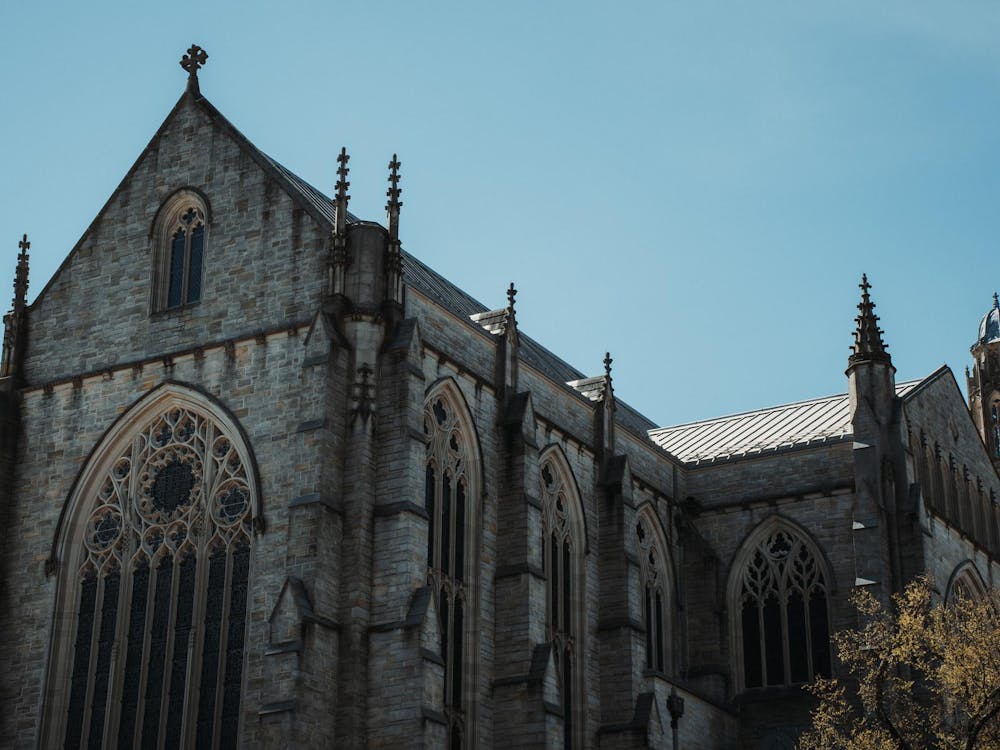Though the cubicle where Eliot Spitzer '81 crafted his senior thesis will soon be uprooted, his opinions about complicated political issues — first planted in the Wilson School — are growing and strong.
Prior to giving a talk yesterday titled "Gun Control: The New York Experience" in Bowl 6 of Robertson Hall, Spitzer took a tour of the building and sought out the small space where he first developed his fiery style.
As New York's 63rd Attorney General, Spitzer has become a leading voice against gun-manufacturing companies — exhibiting a willingness to cause controversy that he also displayed as president of the USG.
"We caused some trouble," Spitzer recalled with a glint of mischievous pride in his eyes as he sat cross-legged on a couch during an exclusive interview with The Daily Princetonian before the talk.
Spitzer's 1998 election "was widely seen as promising a new era in the office of the Attorney General," said faculty chair of the Woodrow Wilson School undergraduate program Stan Katz when introducing Spitzer yesterday.
In a political atmosphere that Spitzer said has in recent years transferred federal power into states' hands, the Democrat has decided to harness this traditionally Republican-backed decentralization in his fight for gun control.
"We're gonna use those powers and have a good time doing it," he said.
Despite powerful opposition from the National Rifle Association, Spitzer said he believes the government can sway litigation over gun control. The federal government is the largest single buyer of guns, said Spitzer, purchasing 25 to 40 percent of the weapons sold.
The one gun-manufacturing company — Smith and Wesson — that signed an agreement with New York state earlier this year accepting design, distribution and marketing reforms has been bitterly maligned by gun advocates. Nevertheless, Spitzer said he believes the state's purchasing power will eventually begin to sway other companies toward regulation.
Spitzer — who has a long history of work in grass-roots politics — is spurred on by his prior experiences with crime and corruption.
Spitzer served as assistant district attorney in Manhattan from 1986-1992 and was chief of the labor racketeering unit. He prosecuted organized crime and political corruption cases and founded the Center for Community Interest — which represents tenant groups seeking to keep drug dealers out of public housing.
Spitzer said growing up in Riverdale, N.Y. — a suburb of New York City — alerted him to the dangers of unregulated gun distribution. He emphasized, however, that his perspective on gun violence stemmed more from the urban atmosphere than the specific city.

"I think in any urban environment you're exposed to a crime problem that is fed by the steady and ready supply of guns," Spitzer said in the interview, adding that as a prosecutor he had regular exposure to the rampant spread of hand-held weapons. He said he has become painfully aware of the ease with which one can buy a gun on a street corner for $200.
When asked how the fight for gun control would compare to the struggle with tobacco companies, Spitzer said, "I think we will have successes, but they will not be the global, sweeping successes we had with tobacco."
"Gun litigation is much different," he added. "There is a much more fractured world view."
The attorney general spoke positively of the potential effect of the presidential election on his prime issue. Spitzer said that even if Texas Gov. George W. Bush — who opposes gun control — is elected, Republican affinity toward reinforcing state power will advance his cause.








